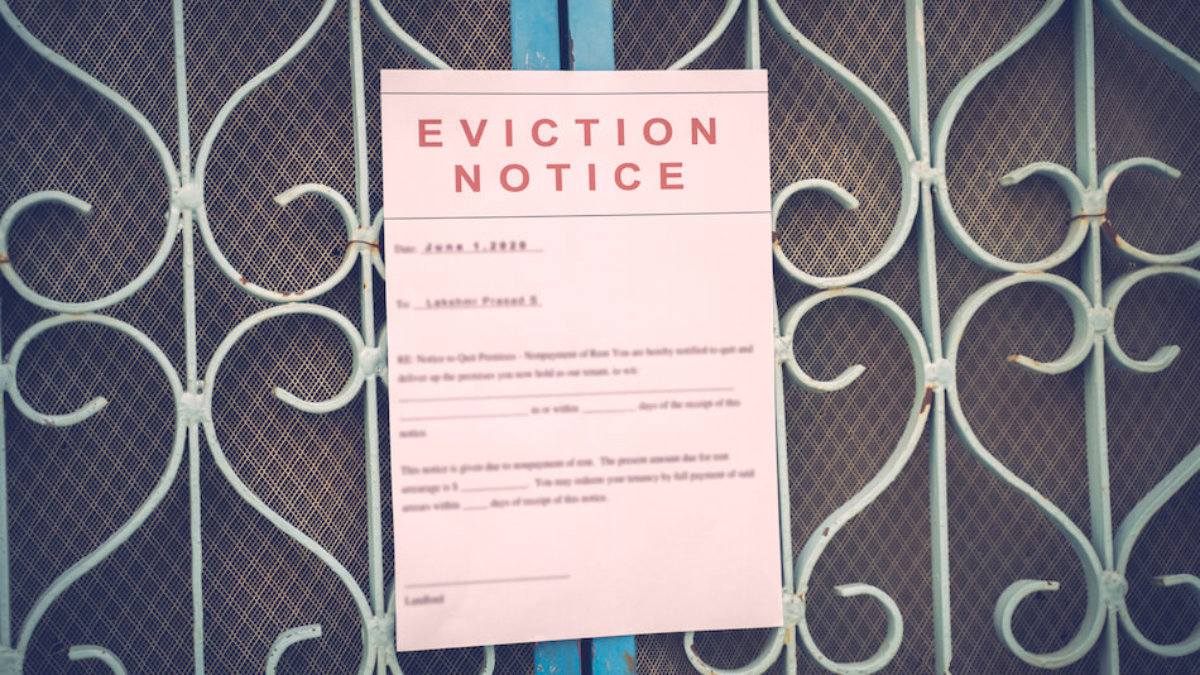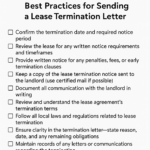Eviction is a legal remedy and an eviction notice is the critical first step down this path. When tenants violate their lease terms, landlords must follow specific legal procedures to regain possession of their property, adhering to regulations that vary by jurisdiction.
Knowledge is power.
Understanding the legal framework of eviction can avert costly missteps. Landlords must equip themselves with the correct documentation and procedural knowledge to act effectively.
Understanding Eviction Laws
Eviction statutes are labyrinthine, often varying not just state by state, but also at more granular municipal levels. Due diligence in comprehending these regulations is paramount, as misapplication can result in significant legal setbacks. At the crux of eviction law lies the balance between property rights and tenant protections, creating a delicate legal landscape that necessitates precision in execution.
In crafting a definitive eviction notice, awareness of your jurisdiction’s specific statutes is essential. Failure to adhere to procedural nuances can invalidate an eviction attempt, leading to potential loss of time and financial resources. Thus, meticulous attention to legal detail is indispensable.
Grounds for Eviction
Eviction is a legal recourse aimed at rectifying tenancy violations and is bound by specific statutory regulations.
Nonpayment of rent remains the most prevalent cause for eviction, expediting proceedings due to clear contractual breach.
Grounds for eviction encompass a spectrum of violations including nonpayment of rent, lease breaches, and illegal activities. Each infraction must be supported by evidence and adhere to prescribed legal protocols to ensure enforceability.
Landlords must reference applicable local statutes to construct valid eviction notices, as grounds for eviction can differ based on jurisdictional mandates.
State-Specific Statutory Requirements
Eviction notice protocols vary considerably from state to state.
- Notice Period: Many states mandate a specific timeframe for notice before eviction can proceed, with periods often ranging from three days to thirty days, depending on the violation.
- Notice Delivery: Statutes may prescribe acceptable methods of notice delivery, including personal delivery, posting on the property, or certified mail.
- Notice Content: Required information within the eviction notice should be state-compliant, generally including tenant name, property address, violation details, and remedy options.
- Language Requirements: Some states require that notices be provided in the primary language of the tenant or include various legal disclosures.
- Filing Procedures: After notice is given, specific filing requirements with local courts or agencies may be stipulated for formalizing the eviction process.
State-specific nuances demand precise comprehension.
Failure to comply with state statutes renders notices legally deficient, jeopardizing the eviction process.
Crafting a Compliant Eviction Notice
When constructing an eviction notice, meticulous attention to statutory requirements is paramount. Discerning landlords ensure each document reflects current legal standards, clearly enumerating reasons for eviction within the designated notice period. Correct delivery method and precise, unambiguous language further fortify the notice’s legitimacy. Importantly, include a clear directive for the tenant to rectify the breach or vacate, and remain aware that certain regulations may demand additional disclosures or tenant accommodations. Stringent adherence to these provisions is essential to uphold the notice’s enforceability in court.
Essential Information to Include
An eviction notice serves as a formal communication that must detail the tenant’s name, rental property address, the lease violation in question, and a citation to the specific statutory ground for eviction. Precisely articulating the reasons for eviction is a crucial aspect.
The document should clearly stipulate the time frame for the tenant to remedy the violation or vacate the premises accordingly.
Moreover, the notice must articulate the date of issuance, ensuring the tenant is aware of the timeframe within which they must act according to their lease terms.
The notice needs to outline the steps that will follow if compliance is not met by the specified deadline, including potential legal proceedings.
Landlords should ensure the inclusion of their contact information, delineating channels for tenants to respond or discuss the notice, which is critical for maintaining open lines of communication and possibly resolving issues amicably.
Lastly, signatories are of vital importance; the notice should be duly signed by the landlord to reflect its authenticity and intent to pursue the outlined actions if the matter is not rectified.
Delivering Your Notice Properly
The correct delivery of an eviction notice is as critical as its content.
- Ensure that the notice is delivered in person directly to the tenant when possible.
- If direct delivery is not feasible, use certified mail with a request for a return receipt.
- A conspicuous placement on the premises, such as the front door, is allowed in some jurisdictions if other methods fail.
- Always check and comply with your state’s specific delivery requirements as they can significantly alter the validity of the notice.
- Document the delivery method, date, and time, retaining copies for your records.
Adhering to state-specific delivery protocols is non-negotiable.
Failure to properly serve the notice can invalidate the eviction, necessitating a repeat of the process.
Free Eviction Notice Templates
Navigating the complexities of eviction notices can be daunting without the right tools. To streamline this process for independent landlords, free eviction notice templates serve as essential aids. These templates concretize legal standards into actionable formats, ensuring that crucial details are not overlooked. By using a reliable template, landlords can tailor eviction notices to their specific circumstances while maintaining adherence to prevailing legal requirements. This provides a safeguard against procedural mishaps that could delay the eviction process. Always remember, though, that these templates are starting points—consulting with legal counsel to ensure full compliance with current laws is strongly advised.
Customizing Templates for Your Situation
Each eviction scenario is distinct and nuanced.
When personalizing an eviction notice template, it’s crucial to thoroughly comprehend the grounds for eviction according to state statutes. For instance, non-payment of rent, violation of lease terms, and illegal activities are common reasons for eviction. However, each state has its own procedural regulations and notice requirements that must be meticulously followed to ensure the eviction is legally binding.
Always tailor the notice to your specific situation.
Include precise details like dates of infraction or non-payment, as these are often legally required. Equally important is to adapt the language in your notice to coincide with the latest legislative changes—it infuses credibility and demonstrates your knowledge of current guidelines.
Ensure the template reflects the most current laws.
Keeping abreast of changes in eviction statutes and incorporating those updates into your template is paramount. This will underscore your dedication to due process and reduce potential hiccups during the eviction proceedings. As of the 2023 legal landscape, staying updated on any amendments will serve as the foundation of a valid and enforceable notice.
When to Seek Legal Advice
Navigating the eviction process can be legally complex and demanding.
- Before drafting an eviction notice, to confirm compliance with the latest statutes.
- When unusual or complicated circumstances arise, such as eviction due to criminal behavior or subletting issues.
- If a tenant contests the eviction or threatens legal action, which could result in a court proceeding.
- After legislative updates or changes in housing laws, to ensure that your eviction notice remains valid.
- When handling eviction in rent-controlled or subsidized housing, as these often have additional regulations.
Certain scenarios necessitate professional legal counsel to avoid costly mistakes.
Consulting an attorney can be vital in preserving your rights and upholding the integrity of the eviction process.
Avoiding Common Eviction Notice Pitfalls
Carefully crafted eviction notices reduce potential legal pushback and ensure adherence to nuanced state and local ordinances. Additionally, ensure that the notice provides a clear, legally grounded reason for eviction. Ambiguities in language or rationale can lead to the notice being contested or invalidated.
Comprehensive documentation of tenant violations, coupled with meticulous adherence to procedure, builds a robust foundation for the eviction process. A well-maintained paper trail forms the crux of your defense against any disputes that may arise.
Eviction Notice Timing and Deadlines
Eviction notices must adhere to specific time frames, dictated by state law, to be legally enforceable. Each state has legislated periods within which a tenant must be notified before the eviction process can formally commence. Understanding these statutory periods is crucial for the initiation of a lawful eviction.
Timing is particularly critical in eviction proceedings. The countdown starts the moment the notice is served. Deadlines are not mere suggestions but legally binding mandates.
State laws vary, but typically require a notice period ranging from just a few days to several weeks. This notice period grants tenants a set amount of time to rectify the issue or vacate the premises, depending on the violation.
Should the tenant fail to respond or remedy the situation within the notice period, landlords can then pursue formal legal action. Serving the notice correctly is pivotal to maintaining the right to take subsequent legal steps.
The manner of serving an eviction notice—whether it’s hand-delivered, mailed, or posted—can affect the relevant deadlines. Documents served in person often require shorter response periods than those served by mail due to the assurance of receipt.
Additionally, landlords must account for weekends and holidays when calculating notice periods. Such days may not count toward the notice period, depending on jurisdictional guidelines.
Documentation and Record Keeping
Meticulous record-keeping is essential when drafting eviction notices. Such records are not merely administrative but are potentially pivotal in legal proceedings.
From the outset, landlords should maintain a detailed file for each tenancy agreement. This file should encompass all pertinent documentation, including the initial rental agreement, records of rent payments, documented communication with the tenant, and any notices previously served. Should a dispute advance to court, these documents serve as a foundational element of your case, corroborating your compliance with rental laws and proving due process was followed.
It’s crucial to retain duplicates of any eviction notice served. Along with this, a proof of service document should be meticulously filled out and preserved, evidencing the delivery method, date, and time of notice service. These meticulous records bolster a landlord’s position, ensuring unassailable documentation in the event of contentious disputes.
When preparing for possible legal proceedings, clear and comprehensive records become an indisputable asset. Ensure that each document is dated, signed when appropriate, and stored securely for easy retrieval. This organizational rigor not only demonstrates your professionalism as a landlord but also establishes a robust defense if the eviction process escalates to litigation, effectively safeguarding your interests and property rights.
Dave is a seasoned real estate investor with over 12 years of experience in the industry. Specializing in single-family residential real estate, David’s strategic approach combines market analysis, financial acumen, and a deep understanding of urban development trends to maximize investment returns.










